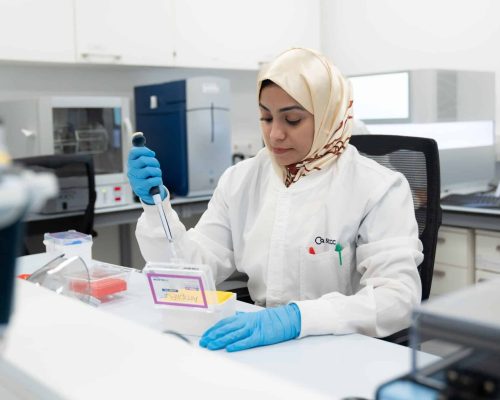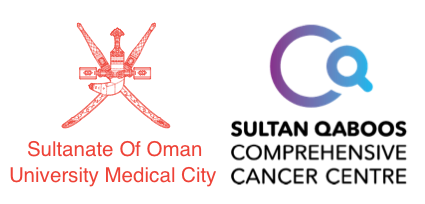


The Sultan Qaboos Comprehensive Cancer Care & Research Centre (University Medical City) was the vision of his majesty Sultan Qaboos bin Said. His instruction was to build a medical centre that delivers a comprehensive health care to Cancer patients.
The centre provides health care through a leading multidisciplinary medical staff with considerable potential, proficiencies, and technical readiness that involves modern medical equipment and advanced information systems, and making the principle of “Patient First” its priority.
The Centre obtained the international accreditation certificate from the Joint Commission International (JCI) in June 2023. The Sultan Qaboos Comprehensive Cancer Care & Research Centre is the first governmental health institution in the Sultanate of Oman to obtain such international accreditation in such a short time frame among all the health institutions in the Sultanate of Oman, in spite of the strict standards enforced to by the Joint International Commission (JCI) for Accreditation of Health Institutions.
The multidisciplinary team includes the following specializations in each of the center’s six programs.


THE ONCOLOGIST: “cancer consultants”: medical, clinical or surgical.
CLINICAL NURSE SPECIALISTS: Co-ordinate aspects of patient care and offer ongoing support to patients and their families in the inpatient and outpatient setting.
RADIOLOGISTS: specialist doctors in reading scans and x-rays to diagnose cancer.
GENETICISTS: A specialist, who consults with an individual who has a personal or family history that suggests an inherited cancer risk condition. Genetic testing options are discussed with the individual and guidance given with the interpretation of the genetic information obtained through testing. Testing results may help to guide a person’s future medical care.
PATHOLOGISTS/HISTOLOGISTS: Specialists who examine human cell samples under a microscope to determine if cancer is present.
DIETICIANS: Provide dietetic counseling for patients and their families regarding the patient’s diet during cancer treatment and subsequently, offering well sourced information regarding dietary modification and compensation to minimize the side effects of some of the cancer treatments such as chemotherapy.
Early screening and intervention cancer help improve the patient nutritional status prior to treatment, during the treatment program and improves outcomes.
PHYSIOTHERAPIST: Concerned with treating disease, injury, or deformity with physical methods such as massage, heat therapy, and exercise.
OCCUPATIONAL THERAPIST: Enhances a person’s ability to perform normal, daily roles.
PSYCHIATRIST: Concerned with treating mental disorders and providing psychological support to patients.
PHARMACISTS: Assess, monitor and liaise with the multidisciplinary team to ensure patients’ medication is appropriately prescribed and administered in a safe, effective and sustainable manner. And ensuring that the patient and their families have safe and appropriate understanding of the prescribed use of drugs and their administration. They also liaise in a coordinated manner with the multi-disciplinary team in the decision making around the initiation and management of drug therapy ensuring efficacy and benefit to minimize side effects.

Input your search keywords.

